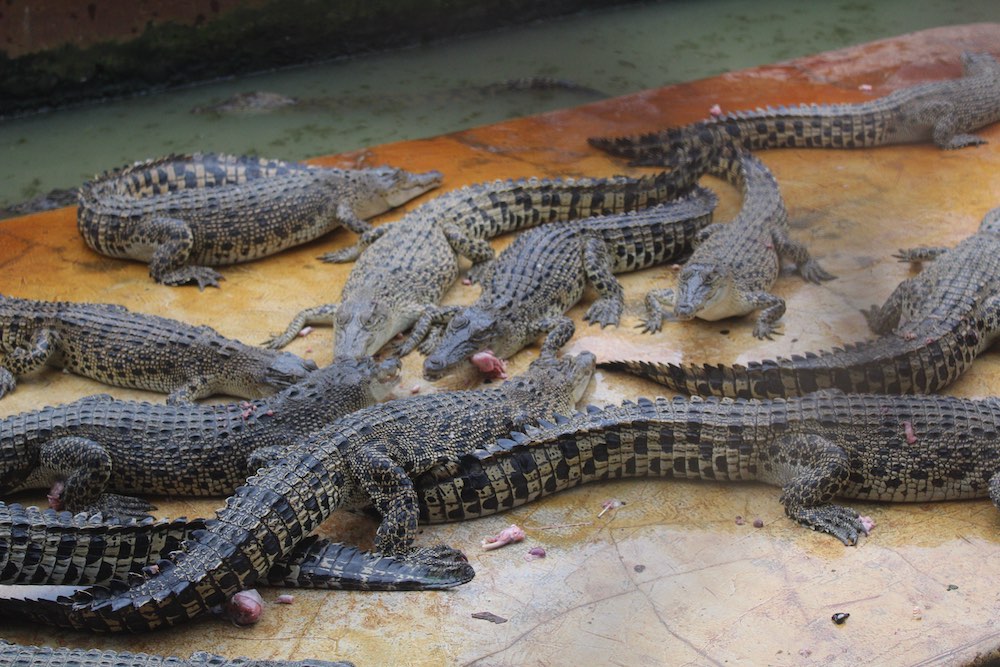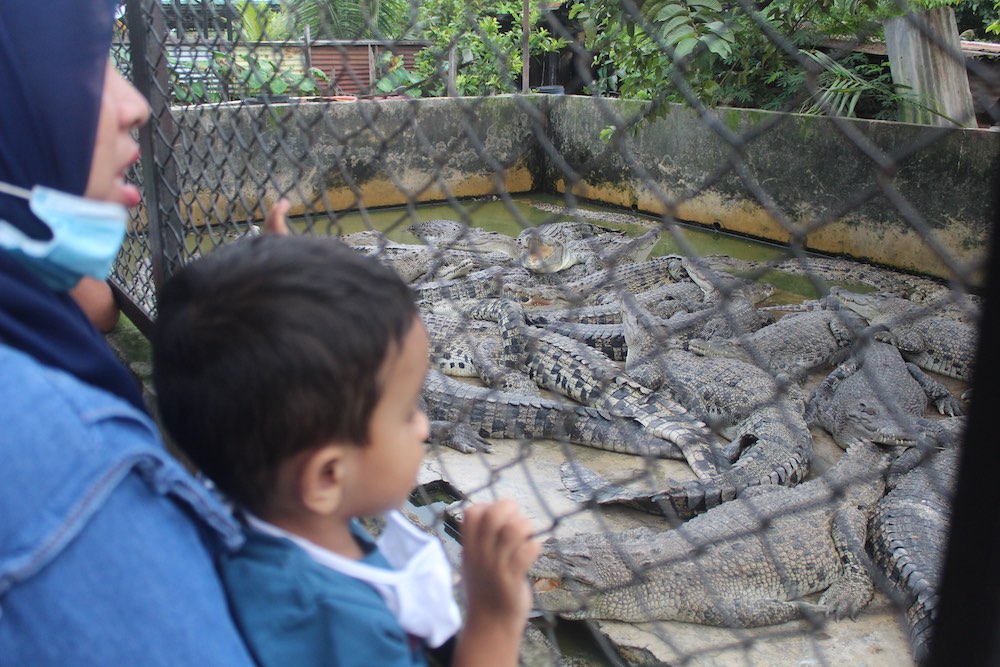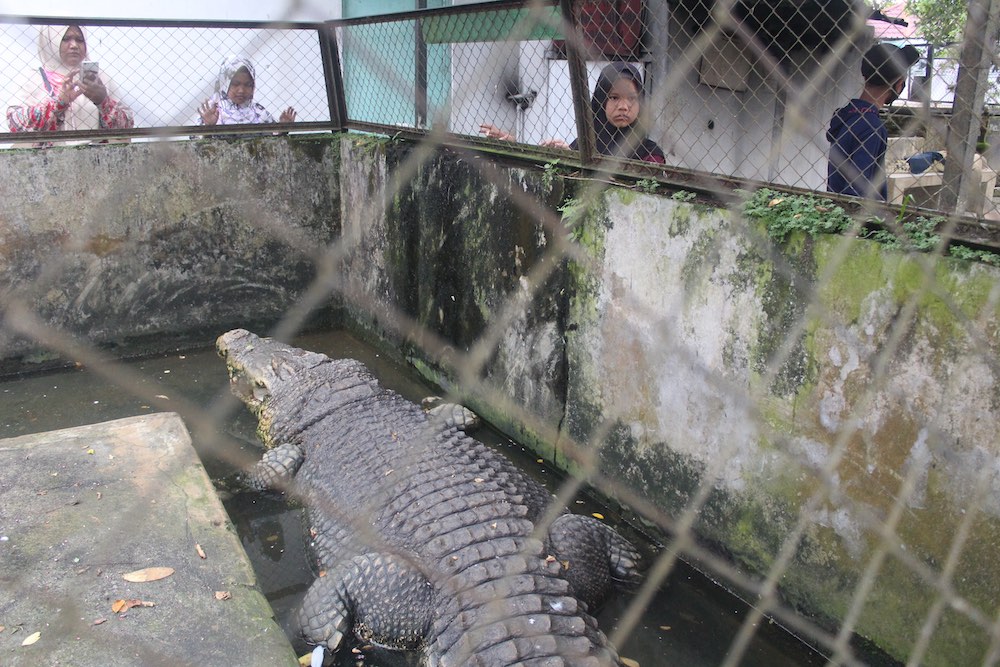This Woman Is Trying to Feed 1,000 Crocodiles on Zero Income
November 25, 2020Lim Wi Chu is a 72-year-old widow, and Asam Kumbang Crocodile Park’s only surviving founder. Since her husband died in 2008, Chu has been solely responsible for the Indonesian zoo’s 1,000-odd crocodiles; a job that has only become harder as COVID slashes tourism numbers, reducing the park’s income to a trickle.
These crocodiles need about 500 kilograms of chicken a day to maintain their condition—but ever since the park closed during lockdown, Chu has only been able to afford 100 kilograms. The animals have begun losing weight.
Even now the park has reopened there’s still hardly any tourists around, and Chu says this is the hardest year she can remember since they opened in 1959. The government hasn’t offered assistance, and the staunchly proud Chu hasn’t asked.
She was, however, happy to speak with VICE World News as she considered it a possible way to attract visitors to the park. Here Chu talks about her loyalty to the crocodiles, and her one-day-at-a-time focus on survival.

VICE: Hey, so tell us about the park. How did it all begin?
Lim Wi Chu: My husband Lo Than Muk started it in 1959. He loved animals very much. In the beginning he raised 12 baby crocodiles that he got from someone locally; the crocodiles originally come from the river, and my husband bought them for a small amount of money—just enough to buy cigarettes.
He then took care of them and fed them, like feeding babies, and over time the crocodiles got bigger and they started to multiply. He was very happy. He took care of them every day.
And the park became a popular attraction in the 80s?
That’s right. It was in 1982 that the zoo became famous and we began getting tourists from all over the world: from Germany, Korea, Japan, and others. People back then called this place the “Medan Crocodile Breeding Farm” and tourists continued to flock here throughout the 1990s. They used to like to come here because it was like being in the wild.

But that didn’t last?
No. In the 2000s, the number of visitors began to decrease. Maybe people were getting bored. For whatever reason, not many people wanted to see our crocodiles.
How have things been during the pandemic?
No one has visited. It was closed for four, almost five months, and it's only been three months since I opened it again. At one stage I actually thought they would starve.
How have you been managing to feed them?
Sometimes we feed them chickens that have died, because they’re cheaper. If not, we look in the market, but the prices are more expensive. Sometimes we feed them cheap cutlets. But now I don't feed them every day. I often do a gap of two to three days. Or sometimes, if we have 200 kilograms of cutlets, we give them half each day for two days.
That doesn’t sound like a long-term solution. Are you worried about the future?
I don't want to think about that. Now I just think about how to get through the day; don't think too far. I want to think there will be no end. The most important thing now is how to make these crocodiles survive.
Have you ever thought about giving the crocodiles to the Centre for Natural Resources Conservation, so they can take care of them?
I don't know, I’ve never thought that. Right now, I just think day-by-day about how to help these crocodiles survive.

How are the crocodiles coping?
These crocodiles can survive without eating for a week. But, sometimes they pounce on the birds perched on the trees around the captive pond; sometimes they eat the chicks that fall.
Have they ever attacked anyone?
Yes, but not badly. Small bites are common. Some people have been scratched, but never killed.
Do you have any plans to pass the farm on to your sons?
I do not know. My sons work in other fields. Living from here, in the country, how could I not expect that? If God gives me health, I will continue here alone—although I don't know how long I will last.
If you die, who will raise the crocodiles?
Well I don’t know whether they like it or not, but I do have my sons. I don't want to think about it though. Like I said before, while I am alive, I try to survive it. When I die, it's up to my sons to do what is in their plan. Whether they want it or not, it's their business.
What are your hopes with this crocodile farm now?
It's been so long, there's no hope. It’s quite simple. I just hope that a lot of visitors come so that there is money to feed the crocodiles and I’m able to pay the workers' salaries. That's it, nothing else.
What’s your fondest memory of working here?
It was around the 1990s when tourists used to visit us from abroad, back when my husband was still alive. He used to take care of the crocodiles like they were children. I miss those times. But now that I am old, I don't want to think about that anymore.
Follow Tonggo Simangunsong on Twitter
